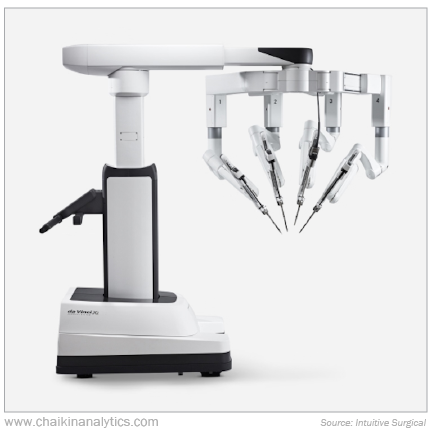The Shift to Tech: Alphabet’s Journey Towards a $3 Trillion Valuation
Two decades ago, industrial giants General Electric and ExxonMobil held the crown as the world’s most valuable companies, valued at $319 billion and $283 billion, respectively. Today, the tech industry has taken the lead, showcasing some of the most recognizable names.
The New Titans of Tech
Apple stands at the top with a staggering market cap of $3.5 trillion (as of this writing). Nvidia and Microsoft closely follow, with market caps of $3.2 trillion and $3.1 trillion, respectively.
With a current market cap around $2 trillion, many may believe that Alphabet (NASDAQ: GOOGL) (NASDAQ: GOOG) isn’t quite ready to join the coveted $3 trillion club. Yet, the stock has surged by 88% since early last year and increased 172% over the last five years. Many analysts are optimistic that its growth will continue.
The combination of a recovering economy, Alphabet’s strong market presence, and advancements in artificial intelligence (AI) could propel the company to this elite level.

Image source: Getty Images.
Recent Improvements
The past few years have presented numerous challenges, including macroeconomic issues and the highest inflation rates since the early 1980s. These factors had a significant negative impact on Alphabet’s primary business divisions, causing the stock to drop by as much as 44% at one point.
However, there has been a noticeable rebound. In September, the Federal Reserve cut interest rates for the first time since March 2020, and consumer confidence reached one of its highest points in months.
This economic recovery is reflected in Alphabet’s recent results. In the second quarter, the company reported revenues of $84.7 billion, a 14% increase year-over-year, with diluted earnings per share (EPS) rising by 31% to $1.89.
All of Alphabet’s key business segments contributed to this growth. Google advertising, which is integral to Alphabet’s revenue, rose by 11% year-over-year, while Google Cloud, the company’s fastest-growing division, soared with a remarkable 29% increase.
A Leader in Multiple Areas
Google remains the dominant force in search, currently holding 90% of the market, according to data from StatCounter. The company has consistently enhanced its search algorithms and has become adept in AI technology over the years.
In digital advertising, Google’s impact is even more profound. In 2023, it captured about 39% of global digital ad revenue, as reported by Statista, outpacing its closest rival, Meta Platforms, which held only 18%. This trend is expected to persist.
In the cloud computing sector, Alphabet is a strong competitor, ranking as the third-largest provider of cloud infrastructure services. As of the second quarter, it controlled roughly 10% of the market, as reported by Canalys, while achieving the fastest growth rate with a year-over-year revenue increase of 30%.
The company’s generative AI tools, including its leading foundational AI model, Gemini, are enhancing demand for Google Cloud, contributing to its appeal among new users.
Stock Market Concerns
Despite this positive outlook, it’s important to acknowledge the challenges facing the stock. An impending antitrust case against Alphabet has gained traction, indicating that Google may have breached antitrust laws. The U.S. Justice Department is considering possible remedies, which could include drastic measures such as breaking up the company—a scenario that hasn’t occurred in decades. Less extreme proposals might involve sharing search algorithms or modifying Google’s default search engine arrangements.
A final ruling on the case is not expected for at least a year, and if Alphabet pursues an appeal—something it plans to do—the legal battle could extend further. Uncertainty in the market typically disrupts stock performance, which has contributed negatively to Alphabet’s stock price recently.
Nevertheless, even in the event of a breakup, some analysts argue this could unlock additional shareholder value, suggesting that current concerns may be overblown.
Charting the Course to $3 Trillion
With a market cap around $2 trillion, Alphabet needs to see its stock rise around 47% to reach a $3 trillion valuation. Wall Street predicts that the company will generate revenues of $347.4 billion in 2024, which translates to a forward price-to-sales (P/S) ratio of about 6. To achieve a $3 trillion market cap, Alphabet would need to grow its annual revenue to around $510 billion.
Wall Street forecasts annual growth of about 11% for Alphabet over the next five years. If the company meets these expectations, it could reach the $3 trillion market cap as early as 2028. Notably, Alphabet has expanded its annual revenue by an impressive 368% in the past decade, suggesting that current growth estimates may be conservative.
Currently, Alphabet is trading at around 24 times earnings, a notable discount compared to the S&P 500’s average multiple of 30. This uncertainty may provide a favorable opportunity for investors looking for long-term gains.
An Investment Opportunity Worth Considering
If you’ve ever felt you’ve missed out on investing in successful stocks, there’s potential here.
Our team of expert analysts occasionally issues a “Double Down” stock recommendation for companies they believe are poised for significant growth. If you’ve been hesitant, now might be the right time to invest.
- Amazon: If you invested $1,000 when we doubled down in 2010, you’d have $21,049!*
- Apple: If you invested $1,000 when we doubled down in 2008, you’d have $43,847!*
- Netflix: If you invested $1,000 when we doubled down in 2004, you’d have $378,583!*
Right now, we’re providing “Double Down” alerts for three exceptional companies, providing a timely chance for savvy investors.
See 3 “Double Down” stocks »
*Stock Advisor returns as of October 14, 2024
Randi Zuckerberg, a former director of market development and spokeswoman for Facebook, and sister to Meta Platforms CEO Mark Zuckerberg, is a member of The Motley Fool’s board of directors. Suzanne Frey, an executive at Alphabet, is also on The Motley Fool’s board. Danny Vena has holdings in Alphabet, Apple, Meta Platforms, Microsoft, and Nvidia. The Motley Fool also owns shares in and recommends Alphabet, Apple, Meta Platforms, Microsoft, and Nvidia.
The views and opinions expressed herein are those of the author and do not necessarily reflect those of Nasdaq, Inc.









